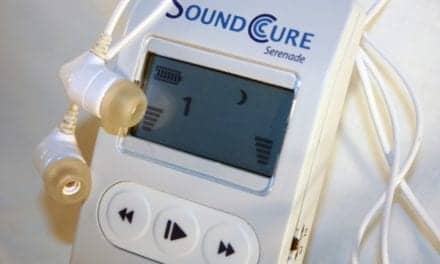10-11-2006
Military veterans are suffering a dramatic increase in tinnitus and other hearing damage, and deserve much more research funding to find a cure, says the American Tinnitus Association, Portland, Ore.
“We will have to spend more on veterans’ disability compensation for tinnitus and other hearing damage over the coming years than for any other medical injuries from the Iraq and Afghan wars,” says David Fagerlie, the association’s CEO. “We should be spending much more on research to cure tinnitus and end our veterans’ suffering.”
Between 2000 and 2005, the number of veterans with tinnitus disabilities more than doubled, Fagerlie says. The amount paid to veterans with tinnitus disabilities went up more than 2-1/2 times. The actual number of veterans with tinnitus may be much higher, he says, since some may not have filed for disability.
With the impacts of blasts from roadside bombs and other explosives, he says, those figures can only climb even further. A recent study shows that 49% of all soldiers exposed to blasts in Iraq and Afghanistan had tinnitus. A total of 60% had hearing loss, which is often related to tinnitus. Audiologists at the Army Audiology and Speech Center conducted the study.
An estimated 50 million Americans suffer from tinnitus, a chronic and debilitating condition often described as ringing, hissing, or roaring in the ears. Tinnitus sufferers hear these or other sounds—including buzzing, whooshing, chirping, and high-pitched squealing—when no external source is present. For 10 million, the condition is severe enough to be distressing and sometimes literally maddening. Between 1 and 2 million sufferers are completely incapacitated by it.
Veterans Administration figures showed 339,573 veterans with tinnitus-related disabilities in 2005, up from 144,243 in 2000. The amount paid to veterans with tinnitus climbed to $418 million in 2005 from $150 million in 2000.
“In recent years, medical research has made significant advancements in understanding tinnitus,” Fagerlie says. “Now our veterans need us to fund the research to find a cure, and that need is only going to grow.”
[SOURCE: Business Wire, September 19, 2006]



